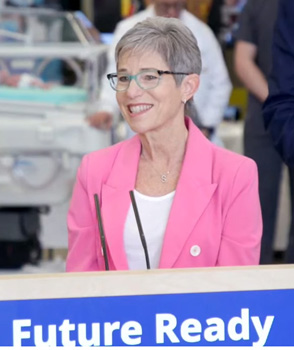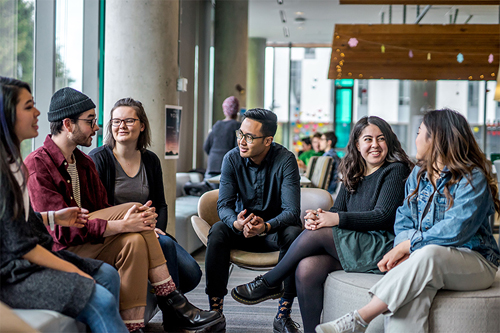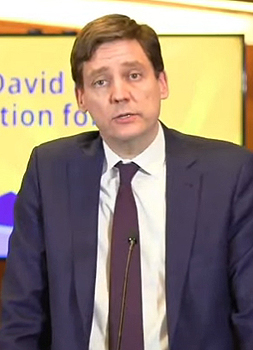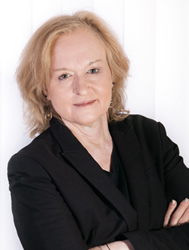Monday January 29, 2024 | VANCOUVER, BC & OTTAWA, ONT [Updated 12:30 pm]
by Mary P Brooke, Editor | Island Social Trends
The international student system in BC “has not been working as well as it should”, said Selina Robinson, Minister of Post-Secondary and Future Skills, in a media session this morning.
There will be a “pause” on approval of any new post secondary institutions to accept new international students for two years (to February 2026).
Premier David Eby says he has the federal numbers on caps, but Minister Robinson doesn’t have those yet.
Eby says he wants international students to have a positive experience in BC whether they stay on to live here or return to their home location. “They have to be treated fairly while they are here,” said Eby today.
Eby talked about “tightening controls on a number of fronts” to make sure international students have a positive experience.
More inspections:

As part of dealing with ‘bad actors’ in the private post-secondary sector there will be more inspections of provincial post secondary institutions.
Reason for the federal cap:
As a way to help moderate the impact on housing and social support infrastructure in Canada (such as the health-care system and immigrant support services), last week the federal government announced maximums as to how many international students can receive enrollment acceptance at Canadian post-secondary institutions.
Problem for a while now:
“We have known about the issues facing international students for some time and we are actively working with the federal government on solving them, and making sure that international students receive the quality education they were promised,” said Selina Robinson, Minister of Post-Secondary and Future Skills, in a statement to Island Social Trends on January 26.
Robinson has yet to articulate why BC waited for federal pressure in order to make changes around problems that have been “known”.
Housing issue:
However, Robinson did articulate about the many years of an exacerbating housing shortage, saying the federal government “exited that field in the 1980s and since then it’s been a challenge”.
As well, she noted that for 16 years (when the BC Liberals led government) that very little student housing was built. Since 2017 the NDP government has created 8,000 new on-campus housing spaces for students in BC with another 4,000 coming.
Impacts on post-secondary institutions:
Universities and colleges in BC are subject to a 2% cap on tuition increases, said Minister Robinson today.
So far there is no indication of how the province will help support post-secondary institution funding beyond the current level. Island Social Trends is awaiting an answer back from the Ministry on that.
B.C. has approximately 545,000 post-secondary students, which includes domestic and international students in the public and private sectors. Of those, more than 175,000 are international post-secondary students from more than 150 countries.
Approximately 82,000 international students in B.C. are at public post-secondary institutions, and approximately 94,000 international students are at private post-secondary institutions.
Key changes announced by BC today:
- Pausing growth of institutions offering international education: The Province will pause approvals for two years, until February 2026, of new post-secondary institutions seeking to enrol international students.
- Enhanced compliance and enforcement: The Province will implement more frequent inspections of private post-secondary institutions to ensure that new and improved quality standards are met and that students are properly supported.
- Higher standards for private degree programs: To ensure students receive quality education, private degree programs will need to meet higher standards for approval. Standards include higher assessment criteria for degree quality, demonstrated labour-market need for graduates and appropriate resources, and student supports.
- New language requirements for private institutions: The Province is setting minimum language requirements at private training institutions to ensure new international students are better prepared for their educational and professional journey in B.C.
- Tuition transparency: Public post-secondary institutions will be required to post tuition levels for students for the entire time they are studying. This ensures incoming students know the entire costs of their education before they start their program.
See previous articles:
- Royal Roads response to federal cap on International students (January 28, 2024)
- BC aims to increase quality standards in international education (January 23, 2024)
- Federal cap on post-secondary international student intake (January 22, 2024)
- Future Ready skills-to-economy matching amidst quarter-million population influx (May 2, 2023)
- A million new job openings projected, most will need post-secondary training (February 7, 2022)
===== ABOUT THE WRITER:
Island Social Trends Editor Mary P Brooke reports with the BC Legislative Press Gallery.
Ms Brooke’s journalism is published in her own series of regional publications (print and online) that have explored socioeconomic aspects of south Vancouver Island, provincial and national news as would impact households, businesses and communities here on Vancouver Island.
The publication series so far: MapleLine Magazine (2008-2010), Sooke Voice News (2011-2013), West Shore Voice News (2014-2020), and Island Social Trends (2020 to present).
This is independent journalism, riding with the mainstream.









